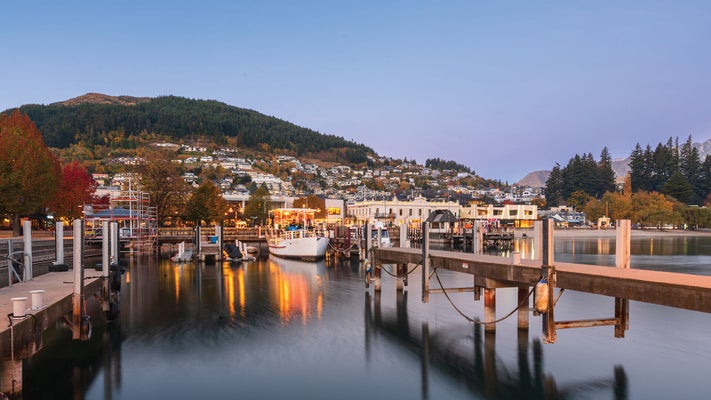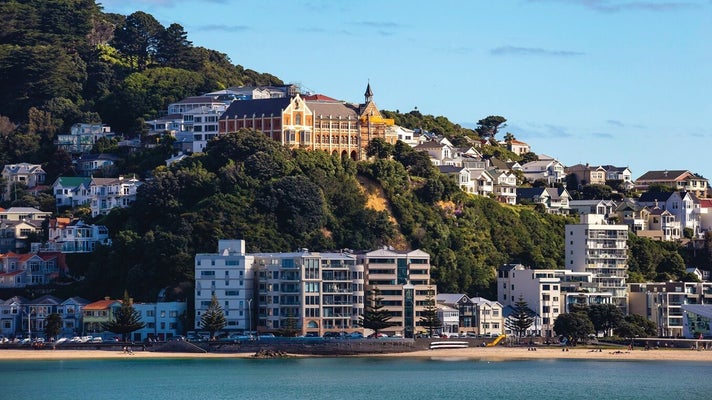Hotels, Tourism & Leisure -
Investment stimulus

The hotels, tourism and leisure (HTL) sector could get a big shot in the arm from refreshed immigration and investment policy settings.
The government has made a number of announcements this year as part of a broader refresh of business immigration settings designed to attract investment and skills, and to boost the New Zealand economy.
The amended Active Investor Plus (AIP) visa incentivises high-value offshore investors to invest directly into New Zealand businesses seeking growth capital and includes the introduction of two investment categories.
The Growth category focuses on higher-risk investments, including managed funds, private equity, venture capital, and/or private credit and direct investments in New Zealand businesses requiring a minimum investment of NZD $5 million for a minimum period of three years.
The Balanced category focuses on mixed investments, with the ability to choose ones that are lower risk, with a minimum investment of NZD $10 million over five years.
The scope of acceptable investments has been expanded for Balanced category investors, with property-related categories broadened. These now include commercial or industrial property development used for business purposes and capable of a commercial return, along with vacant land where plans have been consented and approved, and where work is underway. There is also potential to acquire existing commercial property where further development/improvement opportunities have been identified and which can create new jobs.
The AIP visa has generated significant traction since its introduction on 1 April this year, with Immigration Minister Erica Stanford saying 316 applications have been received, with a potential investment value of more than NZD $2 billion. Around half of the applications came from high-net-worth Americans.
Minister Stanford recently travelled to the US with a delegation from Invest NZ, the government agency dedicated to facilitating foreign direct investment, to broadcast that New Zealand is very much “open for business”. The delegation got in front of 175-plus interested investors with the capital, knowledge, skills and desire to actively contribute to New Zealand’s economic growth, and to be part of our business community.
Pathways to residency
November will see the introduction of the Business Investment Visa (BIV) which creates two new pathways for offshore investors to gain New Zealand residency, and is expected to garner a lot of interest when it is activated.
Under the new BIV initiative, which will replace the Entrepreneur Work Visa, foreign buyers can make NZD $1 million investment in an existing business with a three-year work-to-residence pathway, or NZD $2 million investment in an existing business which offers a 12-month fast-track to residency. Providing the financial thresholds are met, either option can be achieved by acquiring a minimum 25-percent shareholding or making an outright purchase, with both options leading to eligibility to apply for the Business Investor Resident Visa.
Buyers coming in on a BIV must actively work in the business, and meet a range of thresholds such as English language, health, character and business experience tests.
To qualify for purchase, the business must employ at least five full-time equivalent staff. There are some excluded business categories including franchises, convenience stores and fast-food outlets.
Meanwhile New Zealand’s foreign buyer ban for residential property has been reviewed, with overseas-based investors who hold AIP residence visas allowed to buy or build one residential property valued at or above NZD $5 million, rather than relying on the existing Overseas Investment Act consent pathways.
One other recent policy initiative worth mentioning is Investment Boost, a welcome tax deduction for businesses looking to acquire new operational assets, and for owners of qualifying commercial buildings.
Effectively an accelerated depreciation measure, Investment Boost allows businesses to claim 20 percent of the cost of qualifying new business assets like plant and equipment purchased on or after 22 May 2025 as an expense against taxable income in the first year, then claim depreciation as usual on the remaining 80 percent.
It also applies to the purchase of new commercial property assets, new capital improvements, and seismic, or other upgrade works to depreciable property, again with the proviso that the property must have been available for use on or after 22 May 2025.

Collaborative approach
Bayleys national director hotels, tourism and leisure, Wayne Keene, says there are motivated offshore buyers able to look at opportunities that were not open to them before now, and that expands the buyer pool for the firm’s clients to tap into. The Bayleys team is proactively working directly with immigration advisers and lawyers to identify opportunities for potential investors keen to enter the New Zealand market.
“AIP visa applicants are high-net-worth individuals, they’re sophisticated buyers and are being selective about the direct investments, business opportunities and property assets they’re considering, including taking prudent advice on market value.
“We expect small to medium-sized businesses to benefit the most from the soon-to-be introduced BIV, and we’re looking forward to the momentum this will add to the HTL part of the market.
“By working with licensed immigration advisers who are at the forefront of the immigration sector, we can effectively put properties and business investment options in front of them, and drive activity across our full-service agency business lines.”
Keene says immigration advisers have stringent processes and screening criteria, and work closely with offshore clients to ascertain whether they meet the visa thresholds before proceeding with any offers.
“Unsurprisingly, given the political and social tensions there, the AIP is attracting a lot of enquiry out of the US but there’s wider interest from around the globe. New Zealand has always had a magnetic pull for foreigners, but with more streamlined pathways to entry, it’s about to come bemore than a holiday destination.
“We are getting direct enquiry through the Bayleys website out of Asia, the US, and the UK. HTL opportunities available to qualifying entrants to the market could include acquisitions, developments, management arrangements, and business opportunities – dependent on the visa category that is activated.
“Owners of HTL assets and adjacent businesses considering selling should talk to us as we have the connections and business line capability to link in with professionals working at the frontline of immigration advisory.”
Keene says there are numerous tourism and leisure-aligned businesses that would fit the new BIV criteria, and he and Bayleys head of business sales William Cheong collaborate weekly with immigration-aligned professionals to ensure they are getting new opportunities in front of the right people.
“Our vendors trust us to leave no stone unturned in the hunt for the right buyer or investor, and the BIV will drive tangible activity across the business sector.
“Given the strong alliances we are building with immigration advisers and lawyers, we expect to have a funnel of qualifying investors actively seeking business opportunities and a pipeline of assets that meet the policy criteria when applications open later this year.
“Our team will be assessing every new business listing against the BIV criteria to see if it gels. We also believe the new policy settings will help drive competition for qualifying assets as for some time now, domestic buyers have had no sense of urgency to transact, and in some instances, they’ve been hoping to scoop up businesses at discounted values.”
While the AIP is proving to be a viable lever for investment, the parameters and intricacies of the BIV are yet to be tested in real time and Keene says more detail around the policy guidelines could emerge ahead of applications opening in November.

Best interests represented
Licensed immigration advisory firm Malcolm Pacific Immigration has been in business for more than 40 years, and is New Zealand’s largest and most experienced team of licensed immigration advisers. Malcolm Pacific has offices in Auckland, Tauranga, Wellington and Queenstown with its advisers regularly travelling overseas to meet with prospective clients looking to pursue AIP visa applications.
Malcolm Pacific director, shareholder and adviser, Daniel Thomson leads a team that manages applications under the AIP category, with the firm also proactively looking ahead to the BIV’s introduction in November.
“Every government has its own take on immigration and Malcolm Pacific advocates with ministers and their advisers so they have the best information they can to make informed and market-relevant policy decisions.
“The AIP was a big announcement and it’s generated a lot of activity and action. Some of the smartest minds and the wealthiest people in the world are applying for visas under the AIP category and they have very big plans for New Zealand.”
Thomson says his advisory team has a roadmap to ensure an applicant meets the government’s eligibility criteria for the AIP to achieve a successful outcome.
“We make certain that applicants embarking on the AIP journey are very aware of the requirements, and work closely with them to ensure their best interests are represented from the start of the process through until their applications are approved,” he explains.
“We look to understand their backgrounds, look at their business track record to see what has made them successful, and seek to understand the contribution they’d like to make to New Zealand through their investment activities.”
Interest in the Balanced category is increasing, says Thomson and he expects over time that increased levels of investment will be made through that channel with the HTL sector in line to benefit.
“The property development aspect is important here, with investment possible in qualifying new or existing commercial or industrial developments. So an offshore buyer could look to buy a rundown hotel asset that needs significant money to bring it back to a competitive standard.
“We’re not talking superficial upgrades such as paint, carpets and curtains – but rather seismic strengthening or the building of additional rooms and amenities, for example.”
With many New Zealand business owners looking to exit, acquire new capital, or bring in new leadership to established businesses, the recently-announced BIV visa which goes live in November is more about residency than simply capital investment and returns, says Thomson.
“The BIV is about people moving to New Zealand, investing in businesses, actively working in those enterprises, and becoming part of the community.
“The BIV will provide a more definitive pathway to secure a residence visa after meeting specific business objectives. We expect there will be strong interest and uptake in this category.
“Some of the finer details still need to be clarified, and our hope is that Immigration New Zealand is well-resourced to cope with the expected flurry of applications. It is important that offshore applicants making offers on businesses are not left in limbo for months while the paperwork gets seen to.”